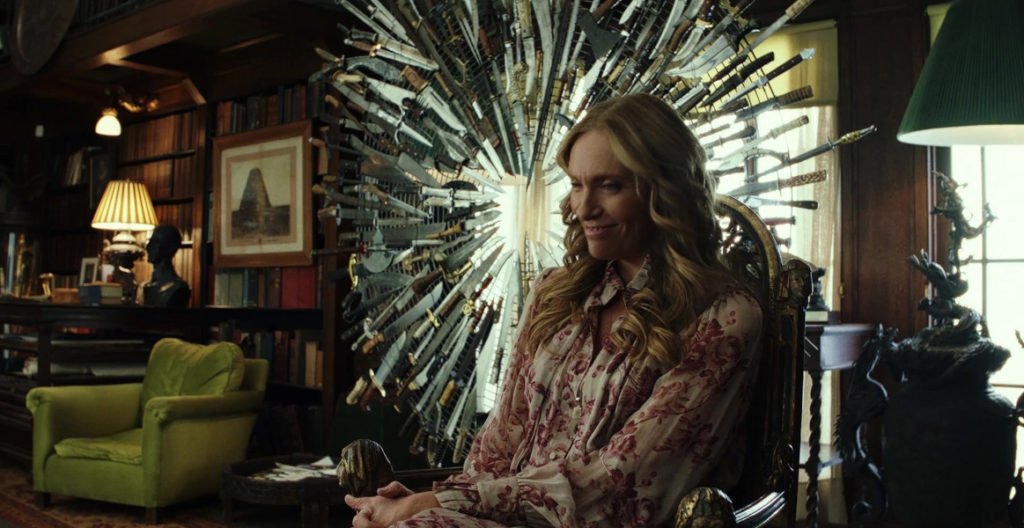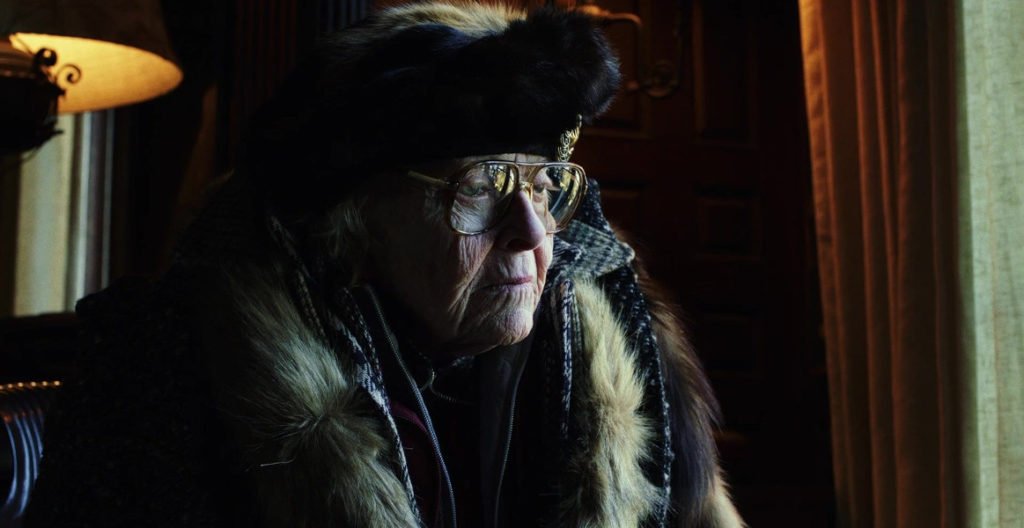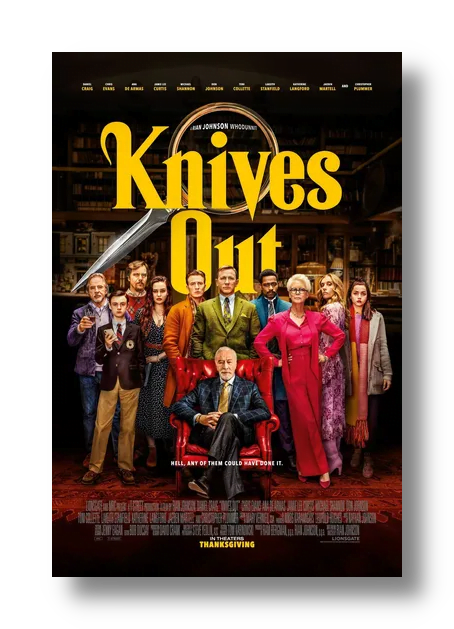Is this going to be the next version of The Raid?
Man I hope this isn’t the next version of The Raid.
Knives Out is a mystery-thriller-drama-comedy? by Rian Johnson starring A Lot Of People People Recognise, showing all the family favourites if you happen to specifically be a Millenial with no actual family. Check it out, it’s James Bond, Captain America, Tess Coleman, Yoda, General Zod, Nash Bridges and Tommy Solomon and they’re all here, and they’re here to tell you a story best compared to a really good Poirot or Miss Marple novel, purified and refined for a movie in the way that the storytelling beats of a novella doesn’t quite normally take. It is funny and it is clever and Daniel Craig does a funny accent, something that unifies his best work, whether it’s Logan Lucky or Sharpe.
These are all things that you probably already know, if you were at all paying attention to Knives Out when it was new. You probably also know it’s really good, or at least, the people who like it really like it and the movie is great content fodder. If you’re interested in this movie, there are hours and hours of explainer videos, there are articles upon articles, every movie, or mystery, or TV podcast made an episod about Knives Out. If you liked Knives Out, and you Made Stuff On The Internet, you probably have made stuff about Knives Out.
Knives Out was a growth industry for a minute. And now we’re getting sequel news, which is a reinvigoration.

I am not writing like this because I am about to drop some shocking dismissal or dislike of Knives Out. It isn’t leading up to the twist of boom, surprise, I think this movie sucks, because no, I don’t. I really enjoyed this movie, I think it’s absolutely excellent.
I really like the way the movie uses conversation. Not dialogue – not the literal craft of a character saying words, and how they use them. That’s part of it, but rather, the way that the dialogue is treated as characters talking to one another, and how they behave. Benoit Blanc, Daniel Craig’s Parker Pyne by way of Foghorn Leghorn (and it amazes me that the movie made that comparison better than I did), commands a conversation typically, holding up his hands and literally making people wait for his long, resonating conversational threads to spin out. When with Marta, that means he is often being encouraged onwards by someone who doesn’t quite follow. When presenting to the Thrombeys, it’s with an overwhelming ostenatiousness that demands attention, where he’s suddenly jousting, asserting, being the one more confident. With his coworkers in the police, they’re usually very tired of his shit, and he becomes instead shorter and more careful.
The Thrombeys, on the other hand, throw information back and forth at one another as a fight, where people aren’t listening to one another, but instead taking chances to jab at one another. That no you style of conversation builds into a fever pitch as phrases get shorter and less coherent and usually, our attention fades out on it. And using this well isn’t just a director’s work, but also an editor’s: The edit is when this stuff becomes less important and fades out, or the moments between dialogue, trimmed in and extended. It’s one of those ways this movie is just really excellently made, and I bring this up because it’s literally the only thing about this movie I like that I haven’t seen someone else already talk about twice.

What do I mean by The Raid, by the way?
It’s why I tried to talk about this movie without saying something that someone else already said, and also, how what I had to say was so… minor. So seamless and inconsequential. Yeah, the movie uses conversation well, that’s obvious and pretty cool, but why not talk about the way that the set designers had to make these intensely cluttered spaces? That’s a whole discipline that’s incredibly hard and used dozens of people, making a set that has spaces for cameras and reshoots that doesn’t break continuity and crucially doesn’t have big obvious spaces for some of the largest and most annoying frustratingly delicate machines you’ll ever see used on a workplace where someone you know has stood around and drunk a coffee.
The thing I worry about is the way that liking this movie, and liking the content of this movie, can become a signifier. Because you notice how I commented on the way it’s made and not about what it’s about?
About the themes of it?
When you talk to people who look like me about The Raid, what you hear is a series of descriptions of how good the fight scenes are, about badass moments, about cool stunts and great characters. When we talk about Old Boy it’s about the octopus eating scene or the ramping tension of the abandoned school or, let’s face it, it’s about the badass combat of the hallway fight.
There are movies that we over-consume in terms of their ingredients and not in terms of their story. Hilariously, spoilers works to emphasise it. After all, it’s a spoiler to talk about why a character is in this scene, but just describing how the scene works, that’s just mechanistic.
I really like Knives Out.
I never want my liking Knives Out to be a chore for the people around me, and I even moreso never want my liking of Knives Out to diminish my appreciation for the things Knives Out thinks are more important than carpets and timing: This is a movie about how rich people are all extremely edible fucking bastards.

1 Trackback